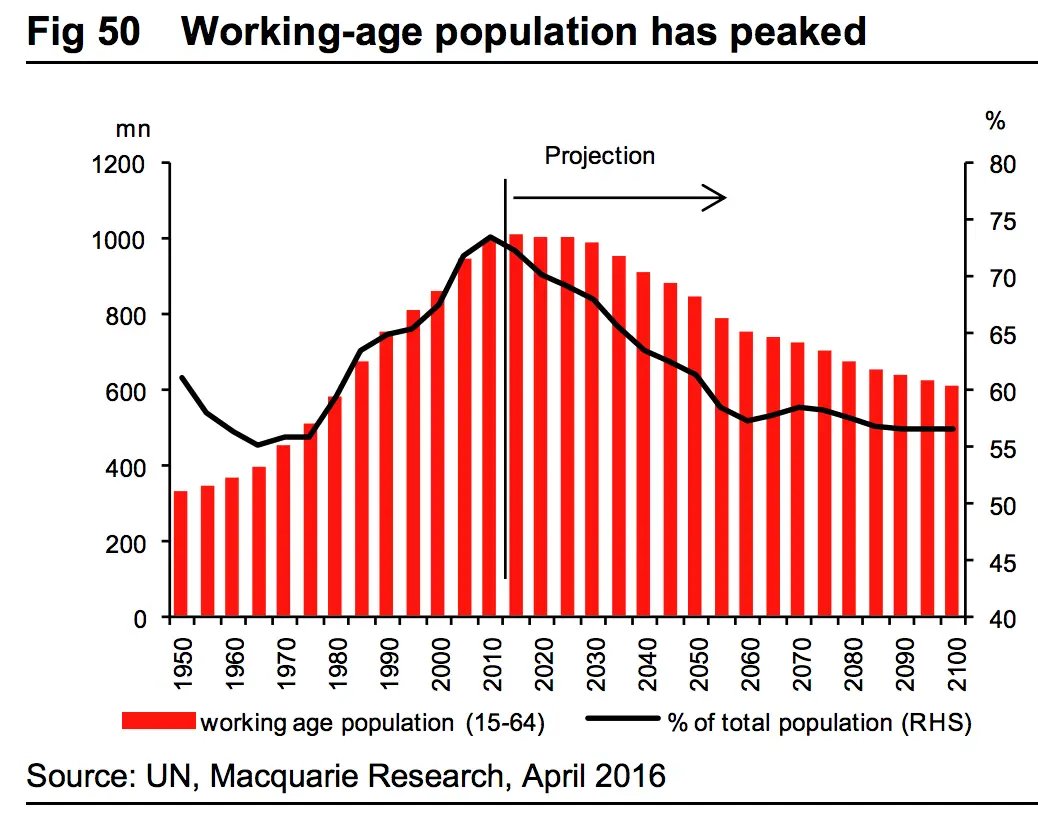
1/Decolonization and Growth: A brief thread.
Let's see how some large post-colonial nations are doing economically, compared to their former colonizers, since the 1960s.
Let's see how some large post-colonial nations are doing economically, compared to their former colonizers, since the 1960s.
2/First, Indonesia vs. Netherlands.
Indonesia is still at less than a quarter of the GDP per capita (PPP) of the Netherlands, and suffered a setback from the Asian Financial Crisis.
But it is steadily gaining.
Indonesia is still at less than a quarter of the GDP per capita (PPP) of the Netherlands, and suffered a setback from the Asian Financial Crisis.
But it is steadily gaining.
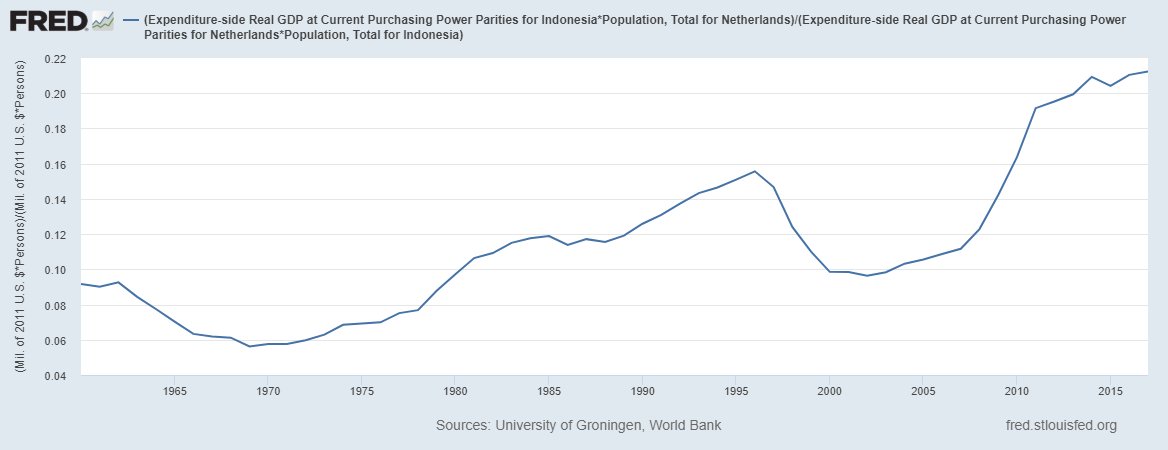
3/Next up: India vs. the UK.
Similar story. India is still only about 1/7 as rich as the UK, but has been gaining steadily in the last two decades.
Similar story. India is still only about 1/7 as rich as the UK, but has been gaining steadily in the last two decades.
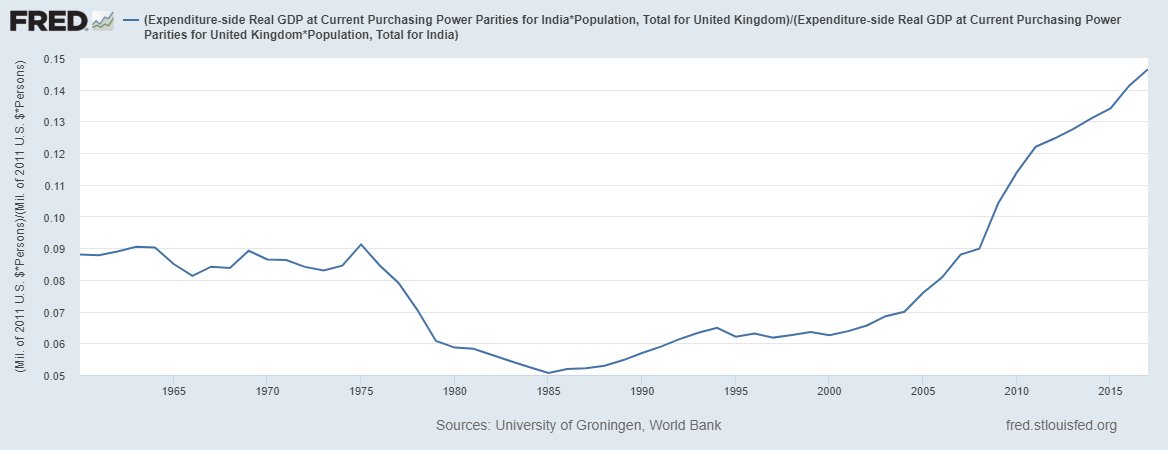
4/Bangladesh vs. UK.
Bangladesh actually *lost* ground for many decades, but recently has begun to turn things around. As of 2017 it was about 1/12 as rich as the UK.
Bangladesh actually *lost* ground for many decades, but recently has begun to turn things around. As of 2017 it was about 1/12 as rich as the UK.
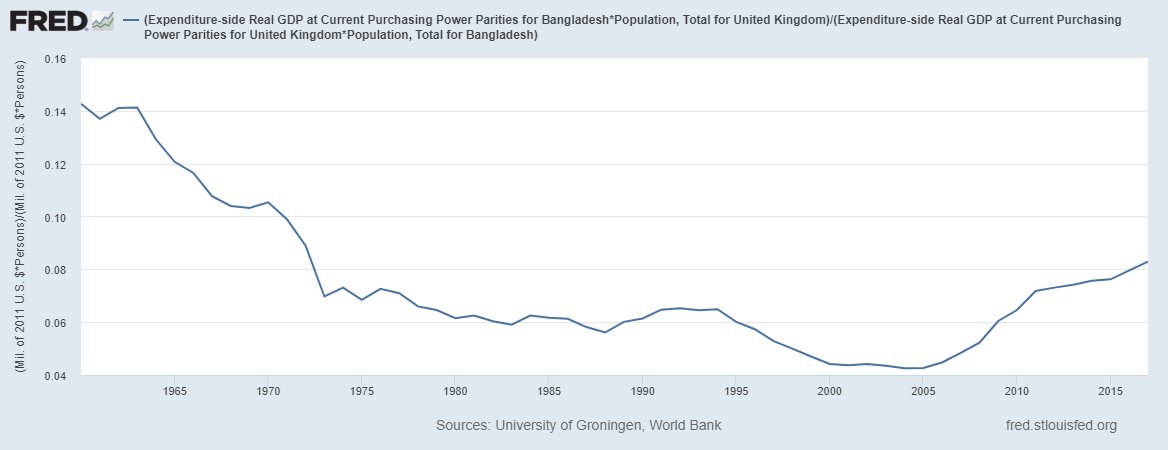
5/Vietnam vs. France.
Similar story to India and Indonesia, but even more so. Vietnam is rapidly gaining on France, but is still only about 1/6 as rich.
Similar story to India and Indonesia, but even more so. Vietnam is rapidly gaining on France, but is still only about 1/6 as rich.
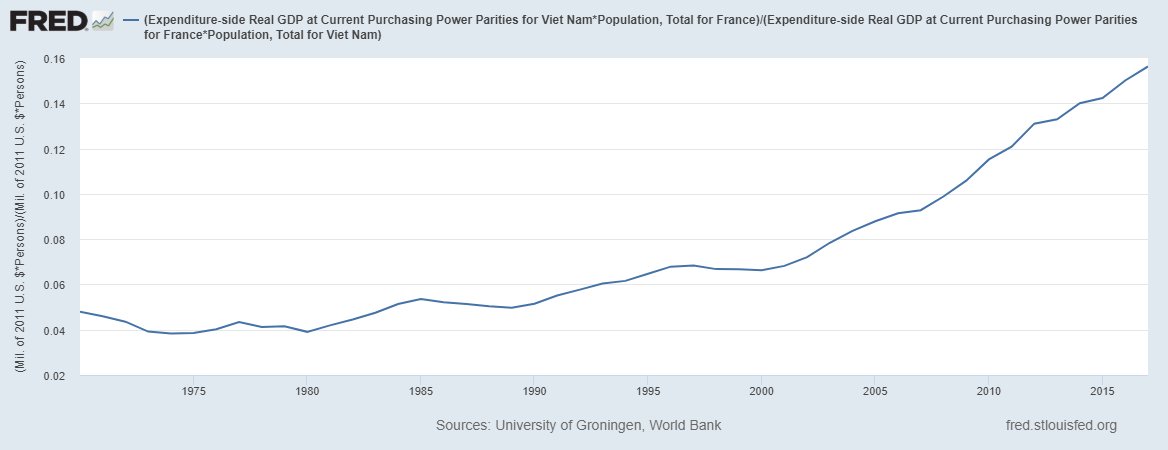
6/Philippines vs. U.S.
The Philippines failed to gained ground relative to the U.S. for a long time, but a process of catch-up may now have finally begun. Philippines is still only about 1/7 as rich as the U.S.
The Philippines failed to gained ground relative to the U.S. for a long time, but a process of catch-up may now have finally begun. Philippines is still only about 1/7 as rich as the U.S.
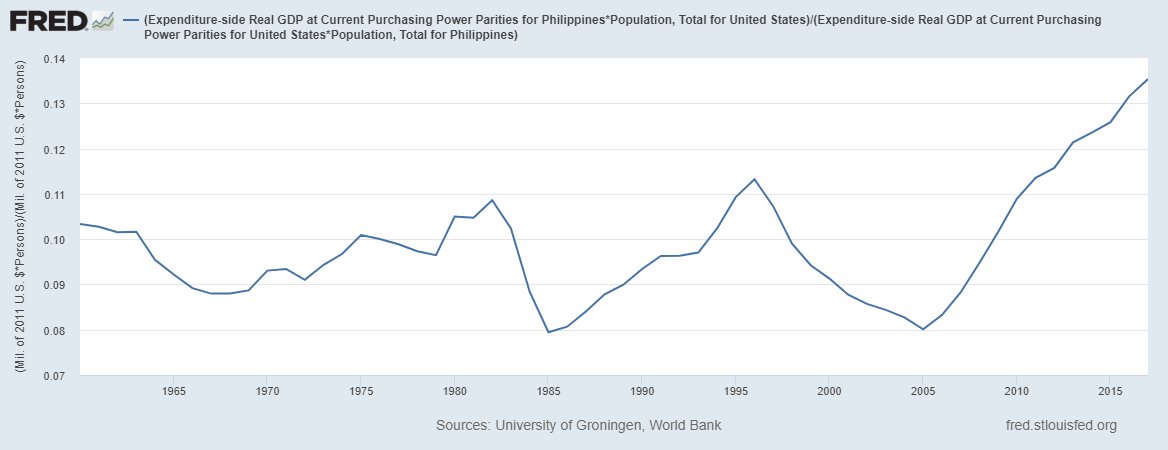
7/South Korea vs. Japan.
This is the biggest decolonization success story. South Korea has almost completely caught up with Japan in economic terms. It started out a bit higher than others, but also its catch-up started much earlier, in the 70s.
This is the biggest decolonization success story. South Korea has almost completely caught up with Japan in economic terms. It started out a bit higher than others, but also its catch-up started much earlier, in the 70s.
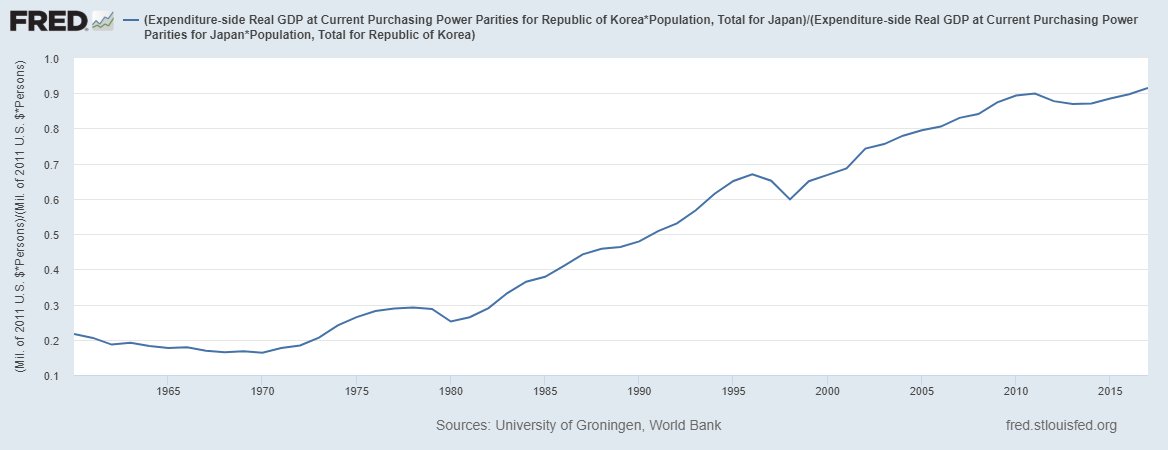
8/Let's look at some earlier decolonizations.
Mexico has actually lost ground against Spain in recent decades. But it's about half as rich as Spain, so it's not doing too terribly in absolute terms.
Mexico has actually lost ground against Spain in recent decades. But it's about half as rich as Spain, so it's not doing too terribly in absolute terms.
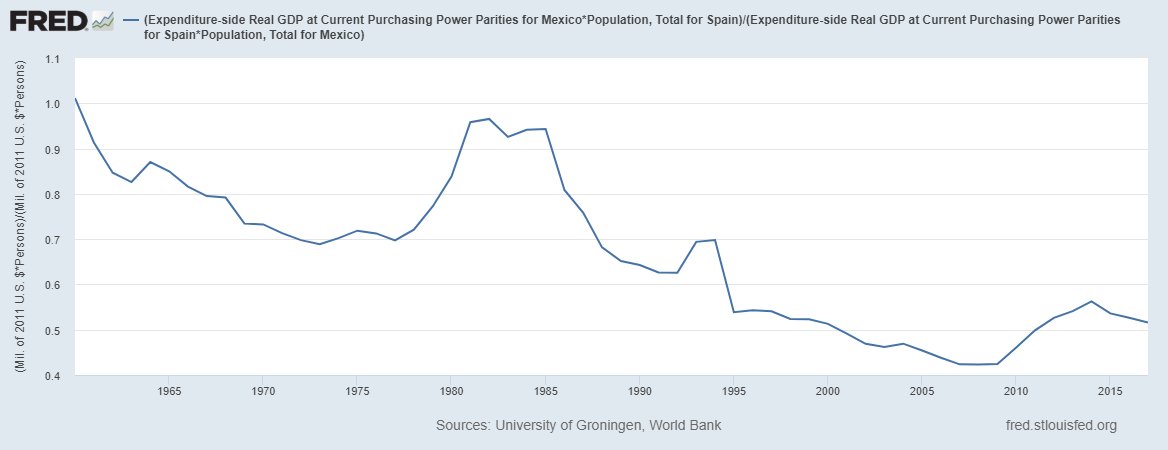
9/Brazil vs. Portugal.
Similar story to Mexico vs. Spain here. Brazil is about half as rich as Portugal, but hasn't really made up any ground recently.
Similar story to Mexico vs. Spain here. Brazil is about half as rich as Portugal, but hasn't really made up any ground recently.
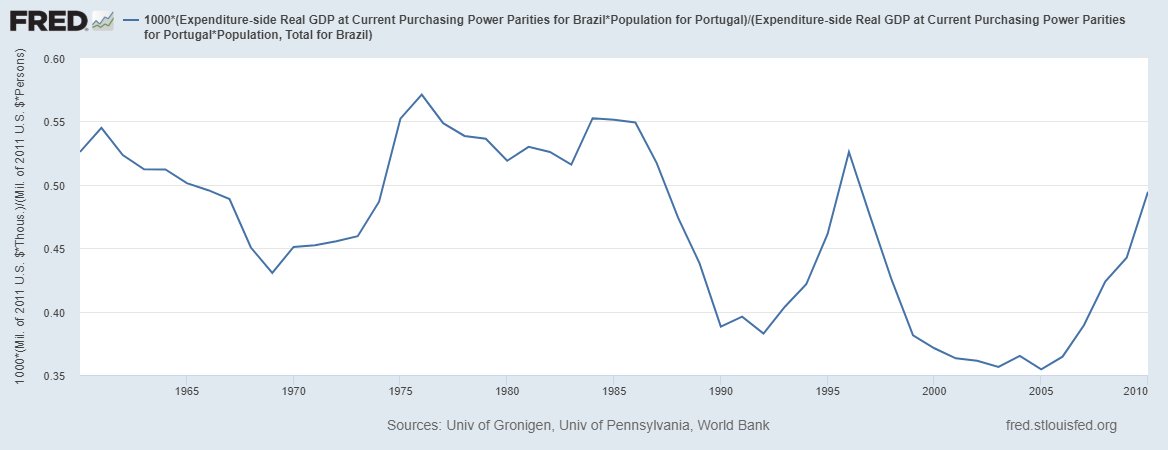
10/We can do a few more for the UK, since it has so many big ex-colonies.
Here's Nigeria vs. the UK. Nigeria is doing terribly, having lost a lot of ground, despite being only 1/10 as rich as the UK.
Here's Nigeria vs. the UK. Nigeria is doing terribly, having lost a lot of ground, despite being only 1/10 as rich as the UK.
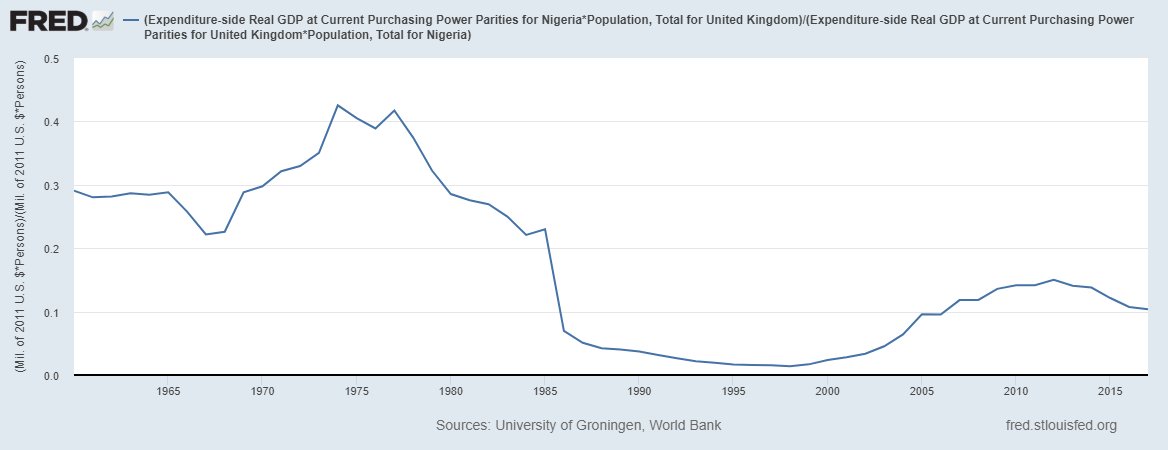
11/South Africa vs. UK.
South Africa lost a HUGE amount of ground in the 70s, going from about half as rich as the UK to barely more than 1/5 as rich. But now it appears to be holding steady.
South Africa lost a HUGE amount of ground in the 70s, going from about half as rich as the UK to barely more than 1/5 as rich. But now it appears to be holding steady.
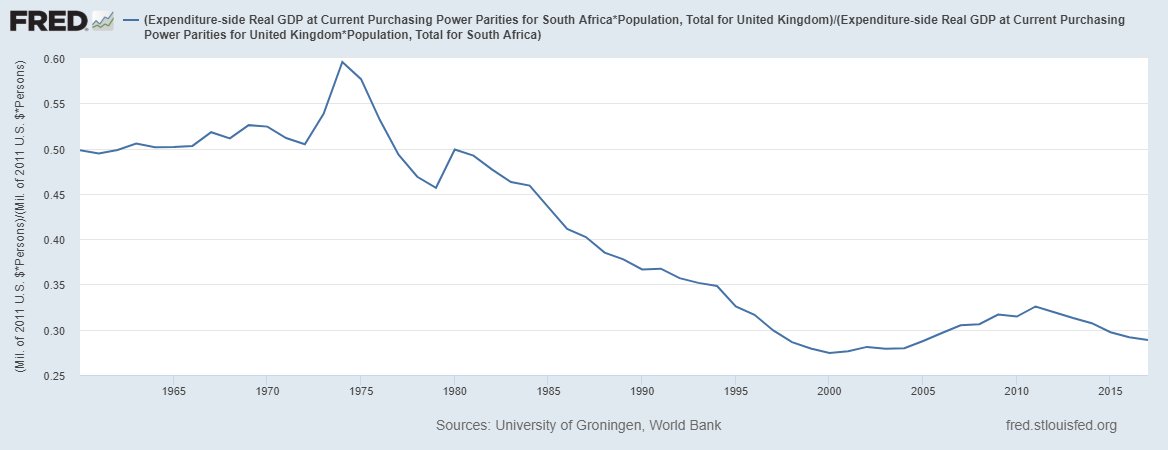
12/I wanted to do Pakistan (and Algeria, for France), but oddly the data is missing in FRED.
Here's Argentina vs. Spain. Holding steady at about half. Similar story to Brazil/Portugal.
Here's Argentina vs. Spain. Holding steady at about half. Similar story to Brazil/Portugal.
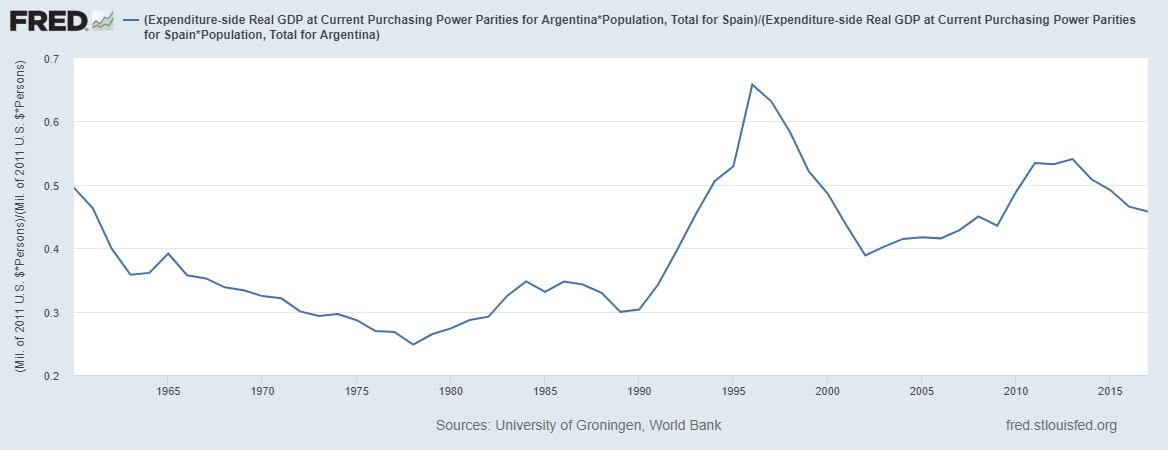
13/Here's Ghana vs. UK.
Ghana lost a ton of ground in the decades after decolonization, and is now only 1/10 as rich, but if you squint hard you might be able to see the beginnings of a catch-up process.
Ghana lost a ton of ground in the decades after decolonization, and is now only 1/10 as rich, but if you squint hard you might be able to see the beginnings of a catch-up process.
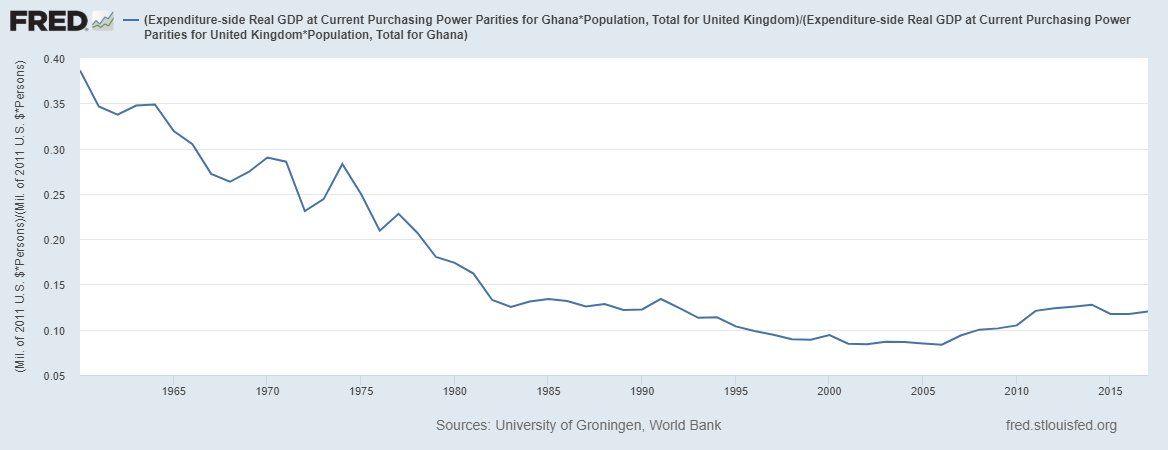
14/In general, we seem to see:
1. Recent rapid post-colonial catch-up from a very low base in South/SE Asia
2. Not much catch-up in Latin America; frozen at about 1/2 of colonizer income levels
3. Deterioration in Africa with recent stabilization at very low relative levels
1. Recent rapid post-colonial catch-up from a very low base in South/SE Asia
2. Not much catch-up in Latin America; frozen at about 1/2 of colonizer income levels
3. Deterioration in Africa with recent stabilization at very low relative levels
15/All in all, the 21st century so far is looking more optimistic for post-colonial catch-up than the 20th century. But there is still a long way to go even in the places where catch-up is happening. And Africa hasn't really started yet...
(end)
(end)
• • •
Missing some Tweet in this thread? You can try to
force a refresh


